10 Chicken Coop Mistakes Almost Every Chicken Keeper Makes
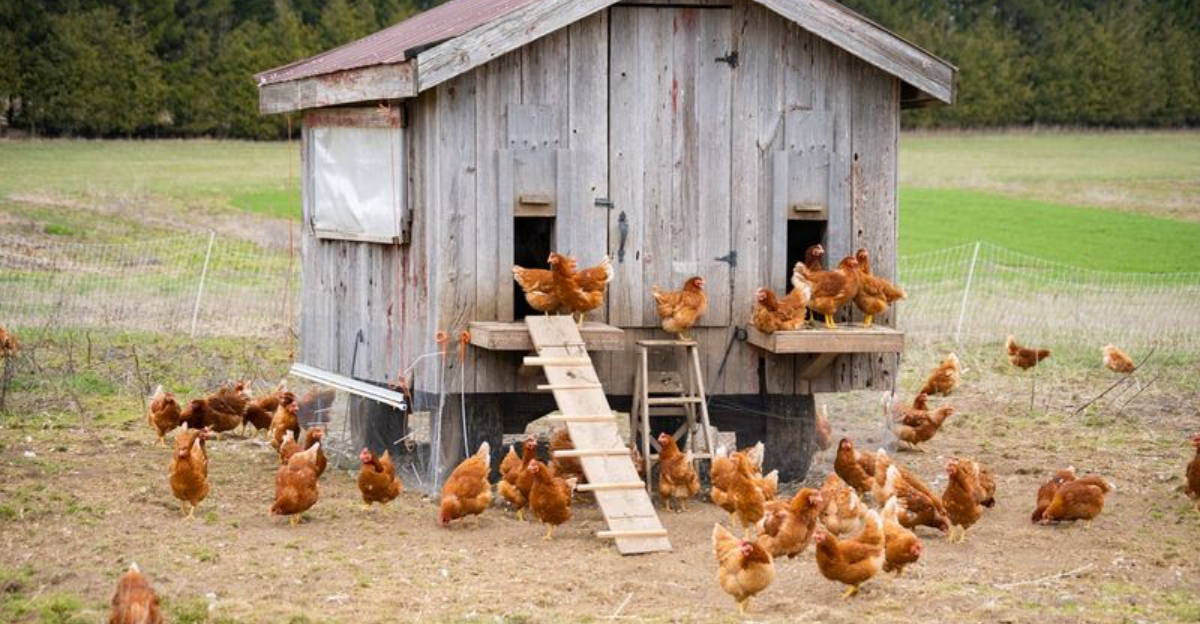
Raising backyard chickens seems simple until you realize there’s more to it than just throwing feed and collecting eggs. Many new chicken keepers learn the hard way by making common coop mistakes that affect their flock’s health and happiness.
Whether you’re just starting out or already have a flock, avoiding these ten common chicken coop blunders will save you headaches and keep your feathered friends thriving.
1. Not Providing Enough Space
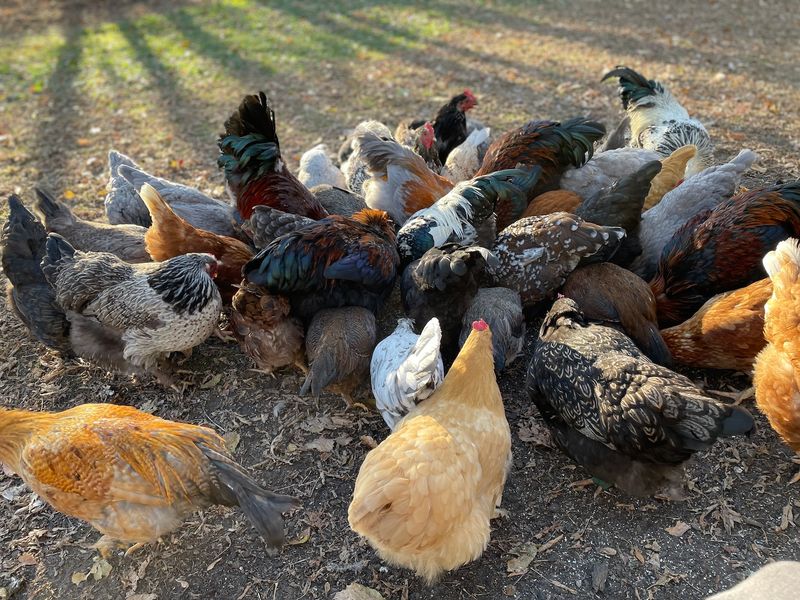
Cramped quarters lead to stressed chickens who peck at each other and develop health problems. Your birds need room to stretch, flap, and establish their natural pecking order.
Aim for at least 2-3 square feet per bird inside the coop and 8-10 square feet in the run. Remember, a crowded coop is an unhappy coop!
2. Poor Ventilation
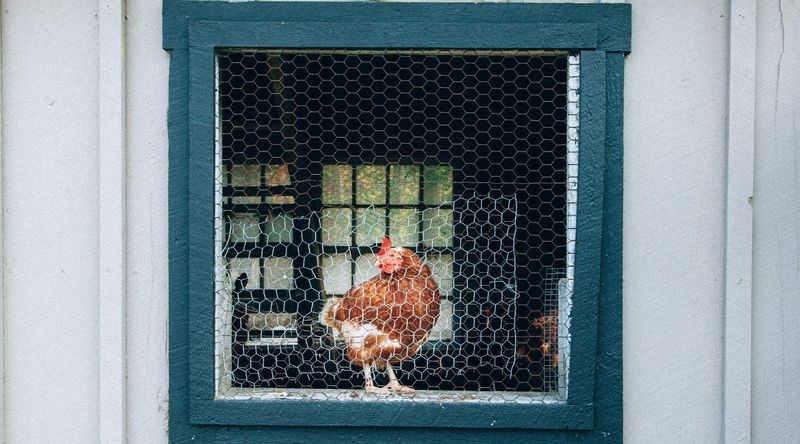
Fresh air matters tremendously in chicken housing! Without proper airflow, ammonia from droppings builds up, causing respiratory diseases that can devastate your flock.
Windows, vents, or small gaps near the roof allow air circulation without creating drafts. Even in winter, good ventilation prevents moisture buildup while keeping your chickens healthy.
3. Insufficient Nesting Boxes
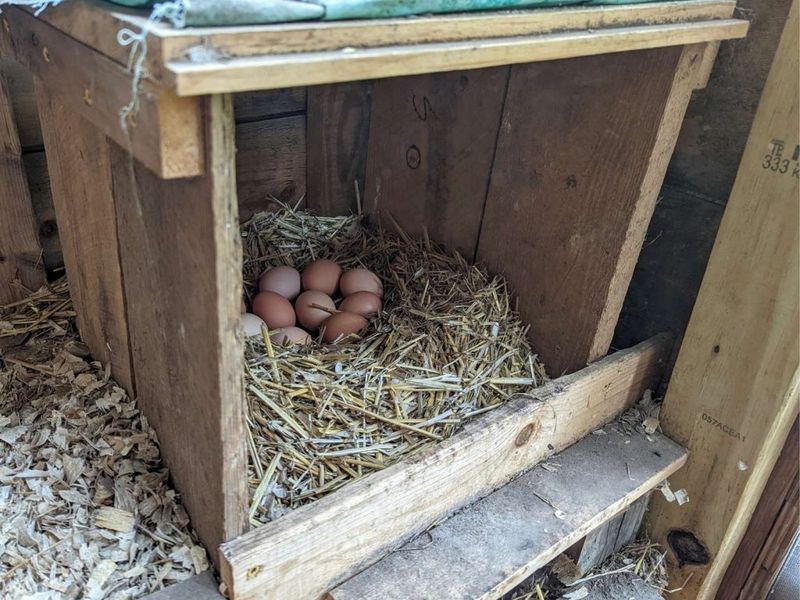
Hens get downright territorial about their egg-laying spots! When there aren’t enough nesting boxes, they’ll squabble, break eggs, or find secret hiding places for their precious eggs.
Provide one box for every 3-4 hens, keeping them slightly darkened and filled with clean bedding. Your reward? Happy hens and easy-to-find eggs.
4. Poor Bedding Choices
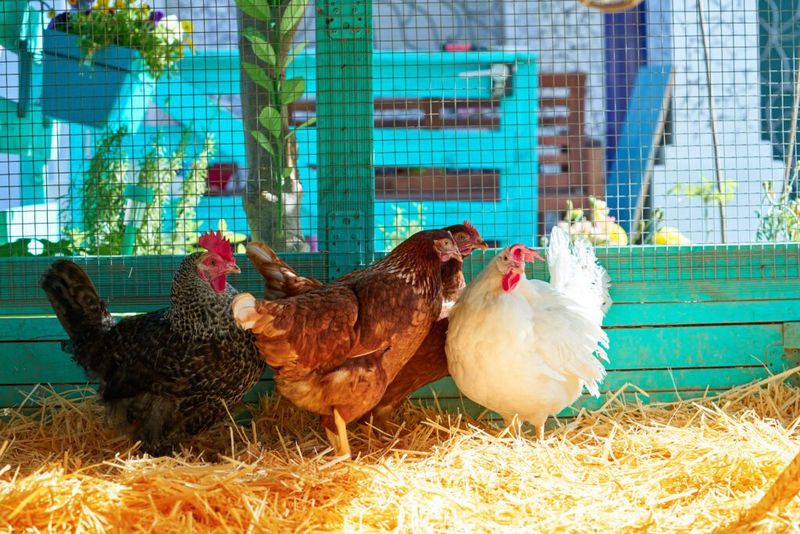
That pretty hay might look cozy, but it’s actually a terrible coop bedding! It retains moisture and quickly grows mold that can sicken your flock.
Pine shavings, hemp, or specialized poultry bedding absorb droppings and control odor. The deep litter method works wonderfully for many keepers, creating compost while keeping chickens comfortable.
5. Incorrect Roosting Bar Height
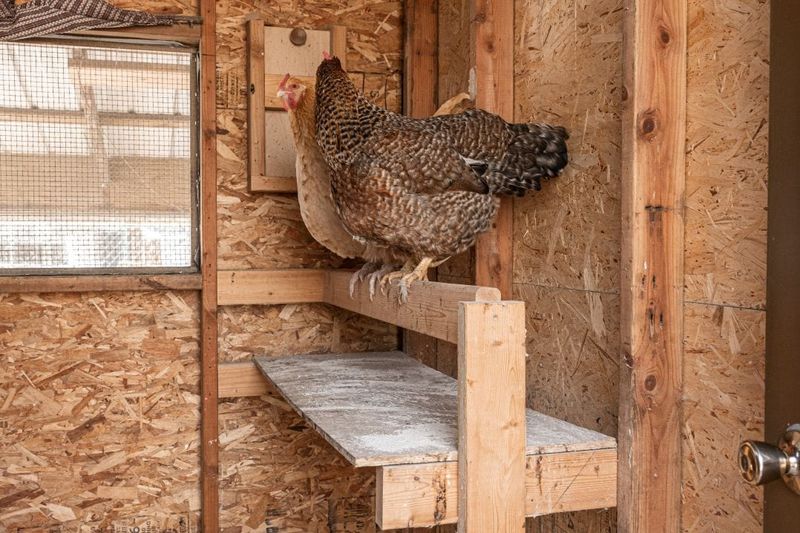
Chickens have strong instincts to sleep up high, away from predators. Bars placed too low leave them feeling vulnerable, while ones too high can cause leg injuries when they jump down.
Install roosts 18-24 inches off the ground, using rounded wooden bars about 2 inches in diameter. Your chickens will thank you with peaceful nights!
6. Lack Of Predator Protection
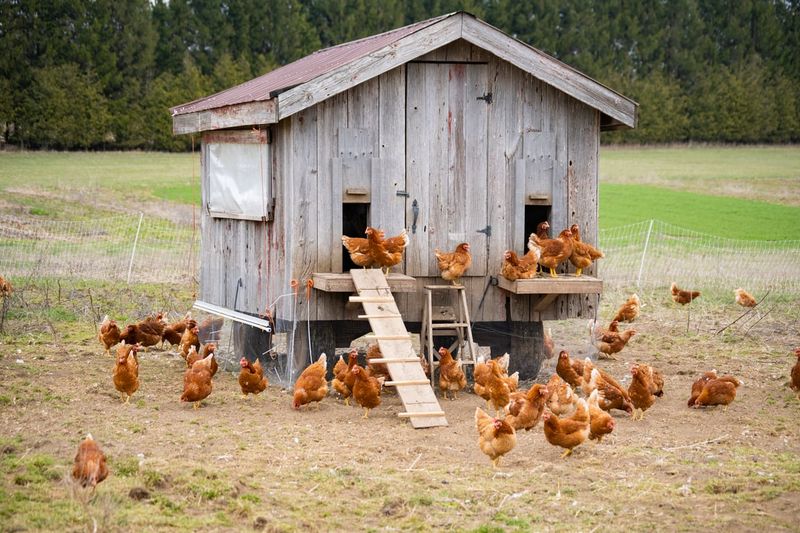
Nothing breaks a chicken keeper’s heart faster than losing birds to predators! Raccoons can open simple latches, foxes dig under fencing, and hawks strike from above.
Use hardware cloth (not chicken wire) with openings smaller than 1 inch. Bury fencing 12 inches deep around the perimeter and install predator-proof locks on all doors.
7. Not Enough Food And Water Stations
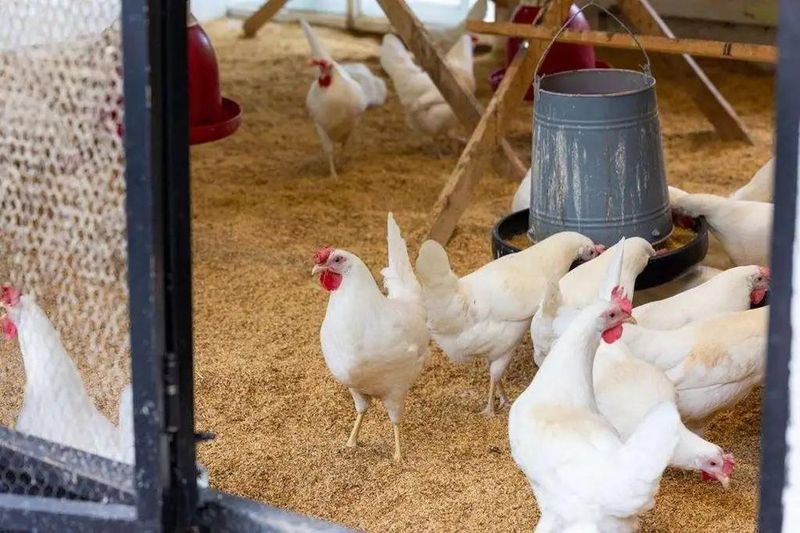
Dominant chickens often guard resources, preventing timid birds from eating or drinking properly. This bullying creates underweight birds and reduced egg production.
Multiple feeding stations scattered throughout the coop and run ensure every chicken gets their share. Especially important: provide several water sources that stay clean and don’t freeze in winter.
8. Neglecting Regular Cleaning
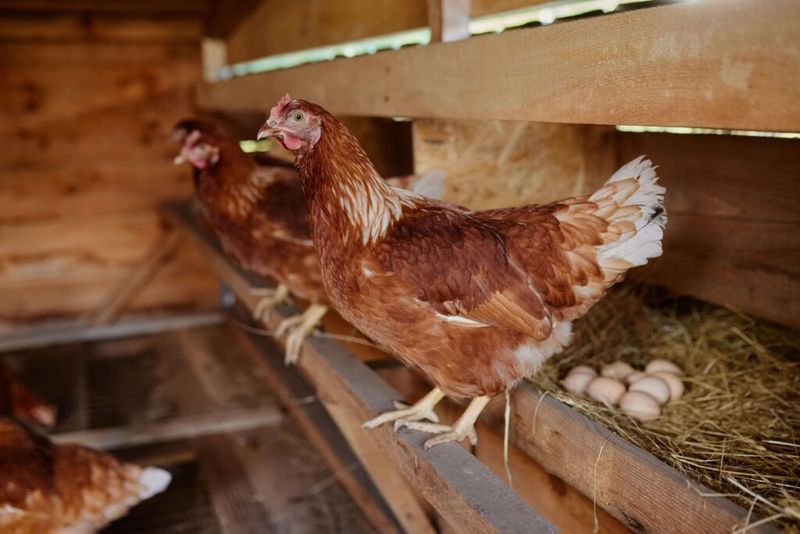
A filthy coop becomes a breeding ground for parasites, bacteria, and disease. The ammonia fumes alone can damage your chickens’ sensitive respiratory systems.
Establish a weekly cleaning routine to remove droppings and replace soiled bedding. A monthly deep clean prevents pest infestations and keeps your flock thriving in a healthy environment.
9. Ignoring Biosecurity Measures
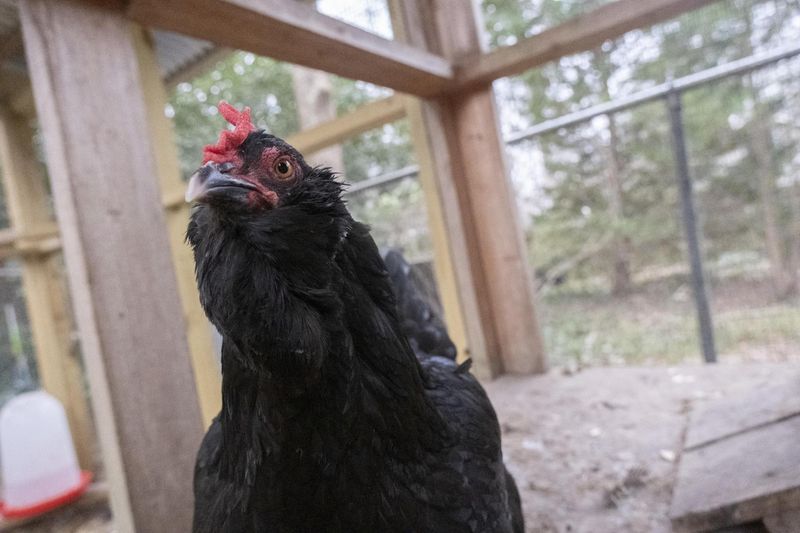
Chicken diseases spread like wildfire through a flock! Many keepers unknowingly introduce pathogens via new birds, contaminated equipment, or even the bottoms of their own shoes.
Always quarantine new chickens for 30 days before introducing them. Keep dedicated boots and tools just for coop use, and wash hands thoroughly between handling different flocks.
10. Not Preparing For Extreme Weather
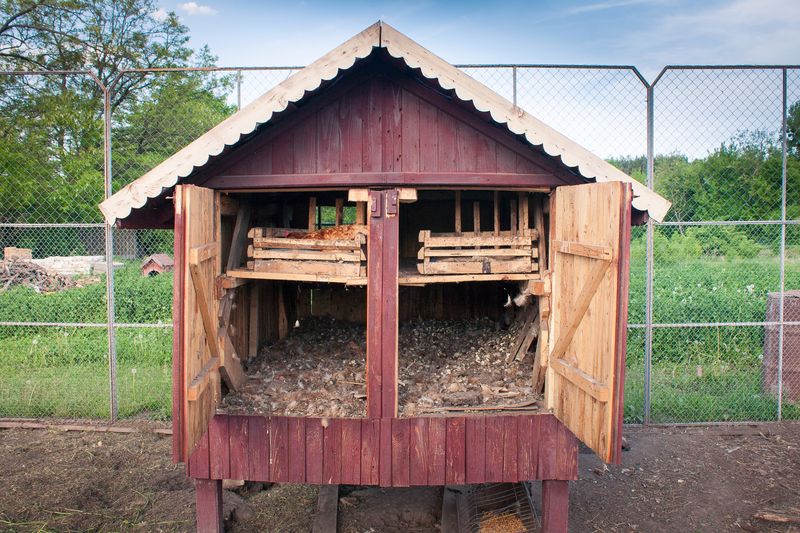
Mother Nature throws curveballs that can stress or even kill chickens caught in unprepared coops. Freezing temperatures cause frostbite, while summer heat can lead to fatal heat stroke.
For winter, insulate without reducing ventilation and use deep bedding for warmth. During summer heat waves, provide shade, frozen treats, and additional water sources to keep your flock comfortable.






